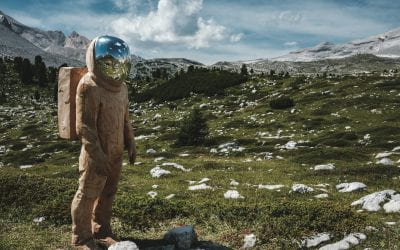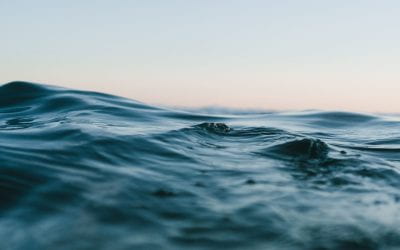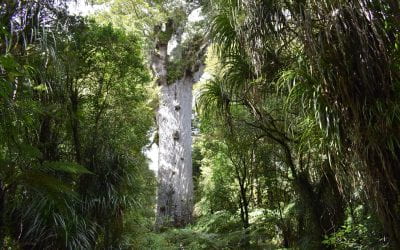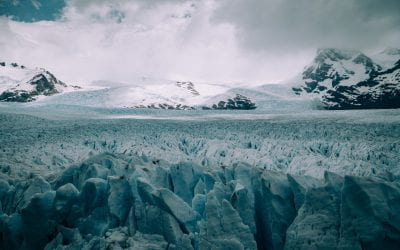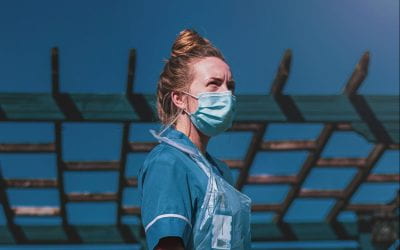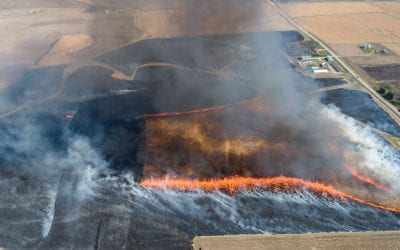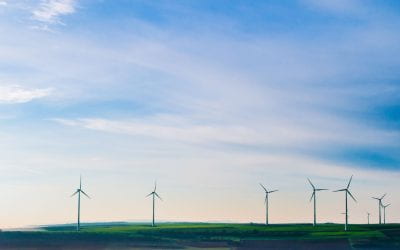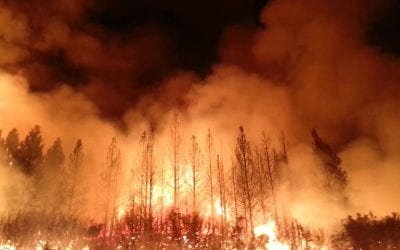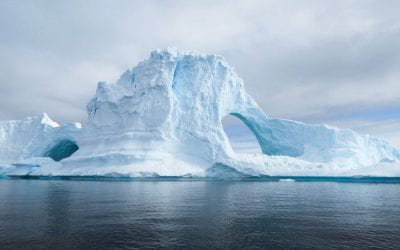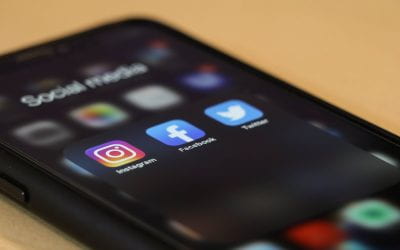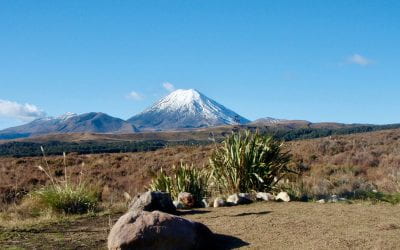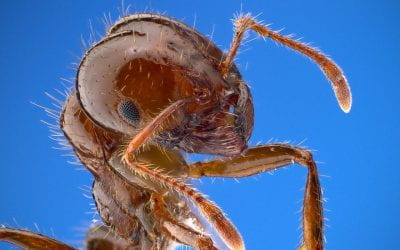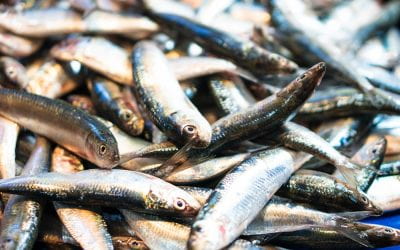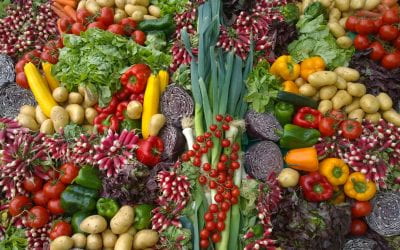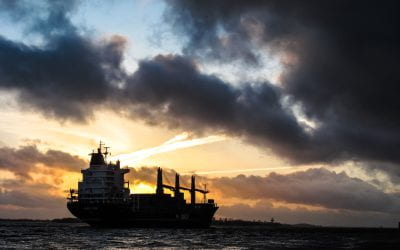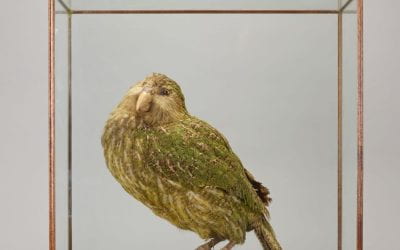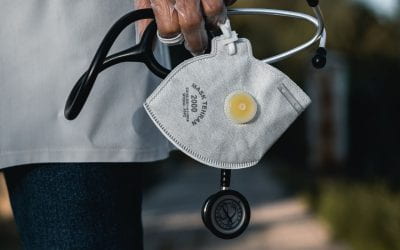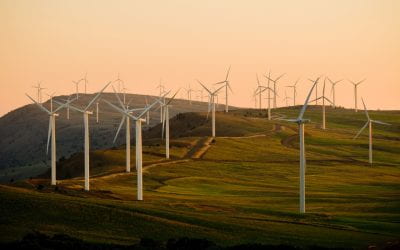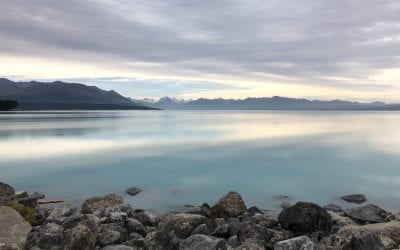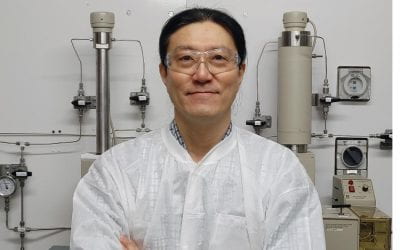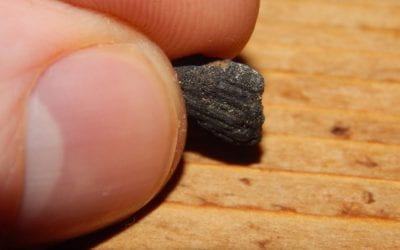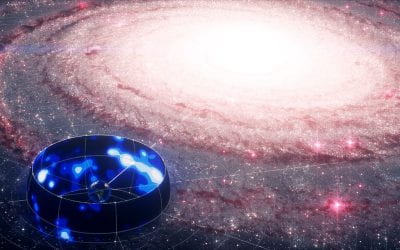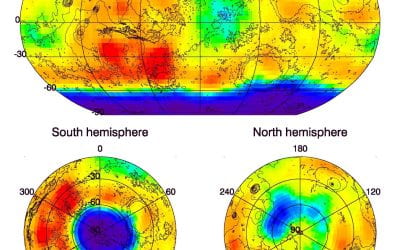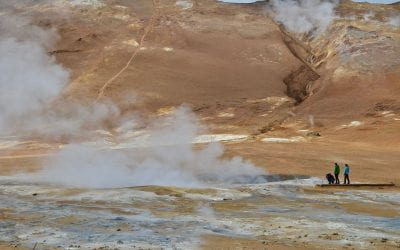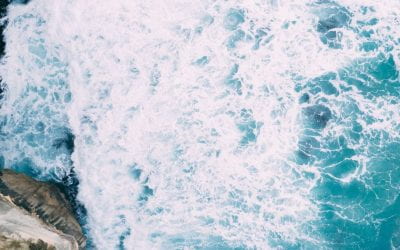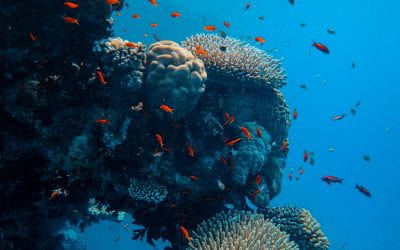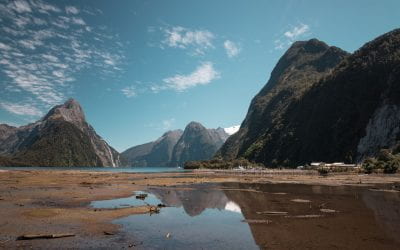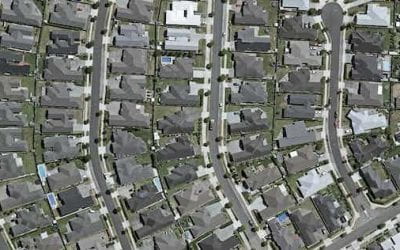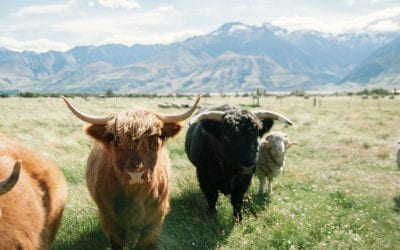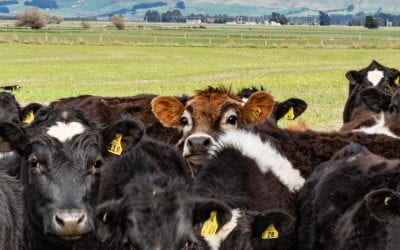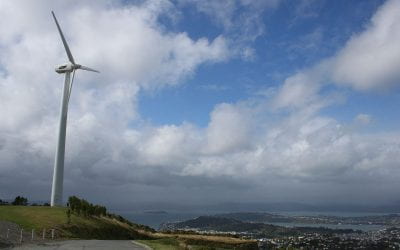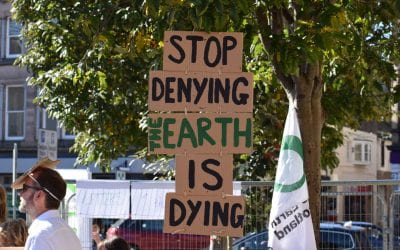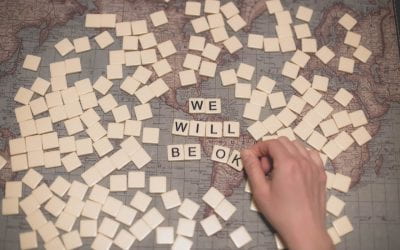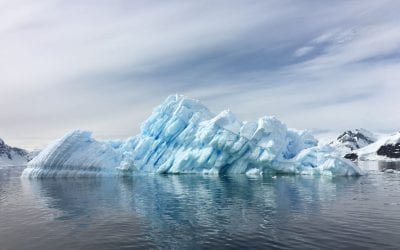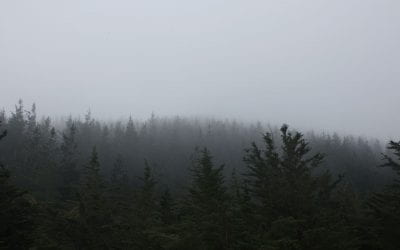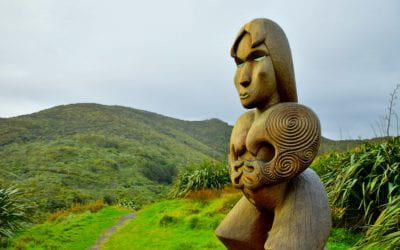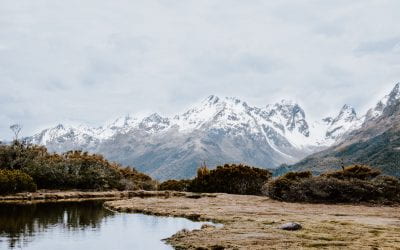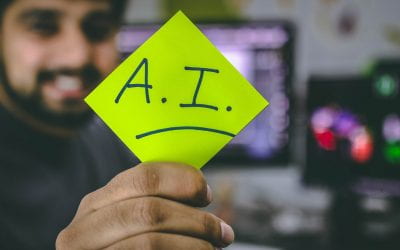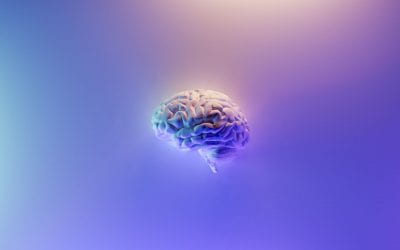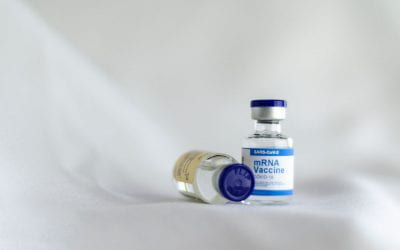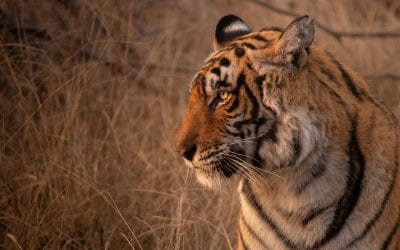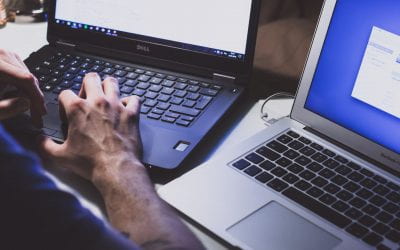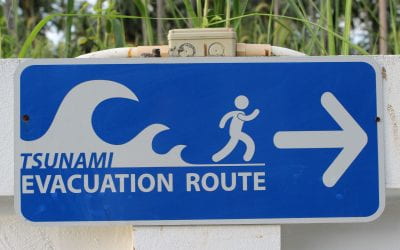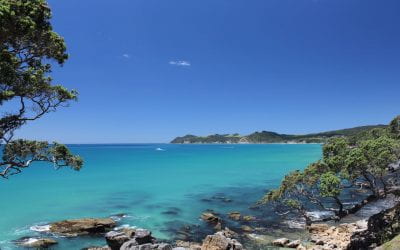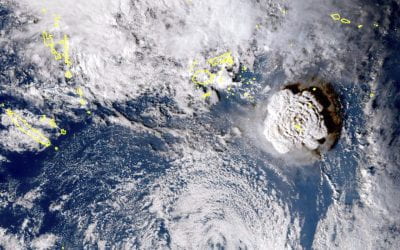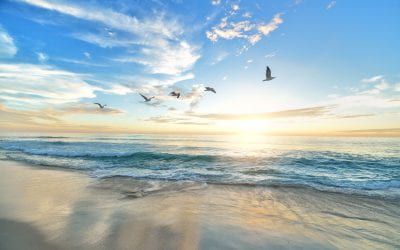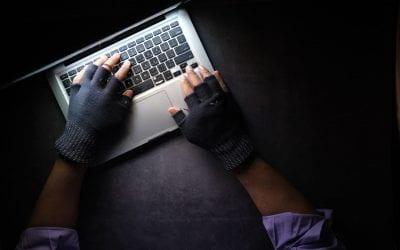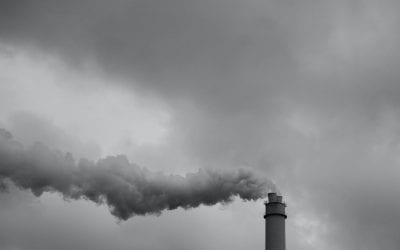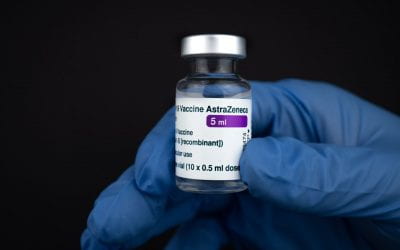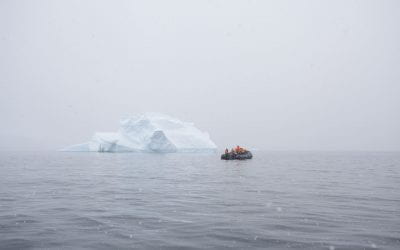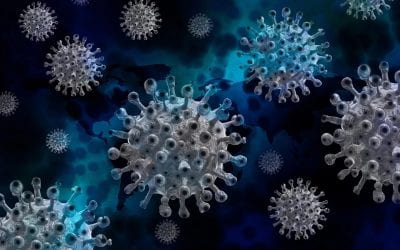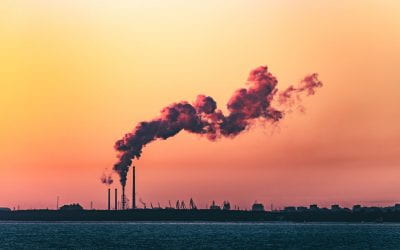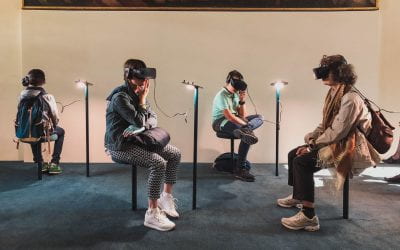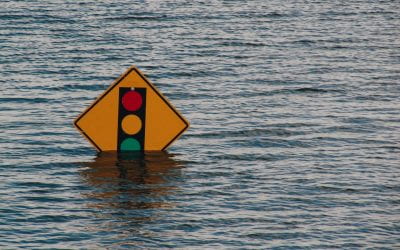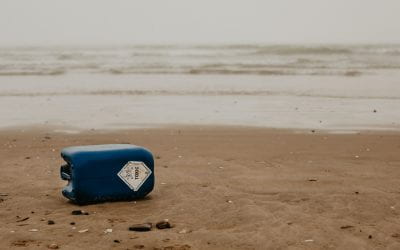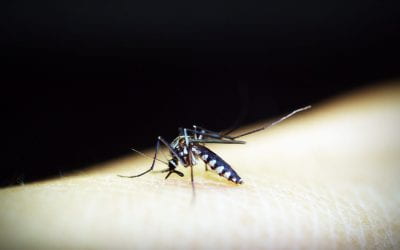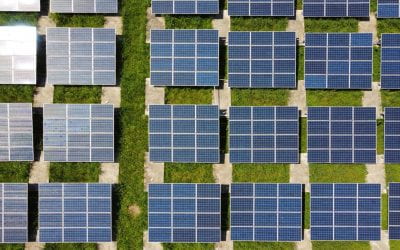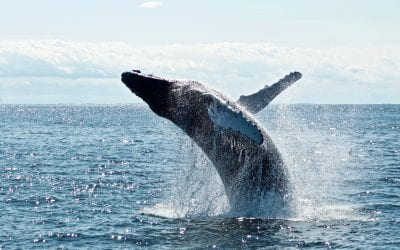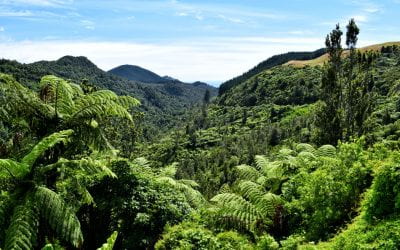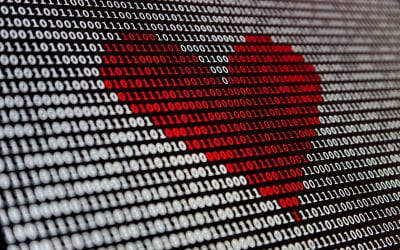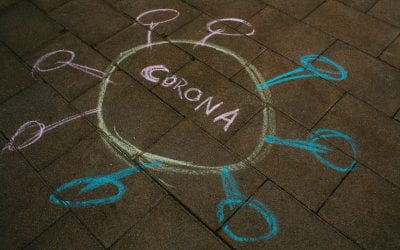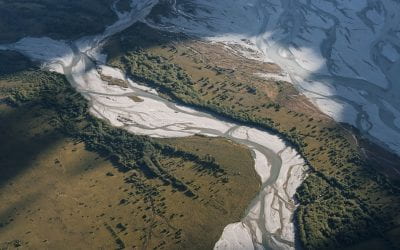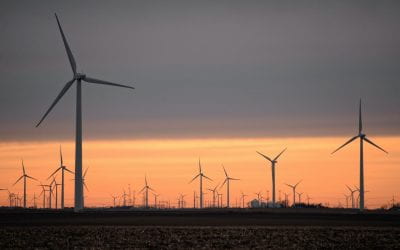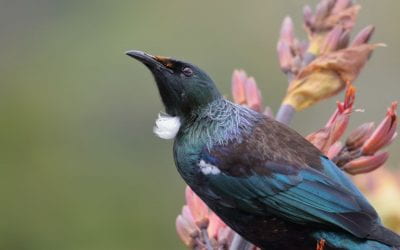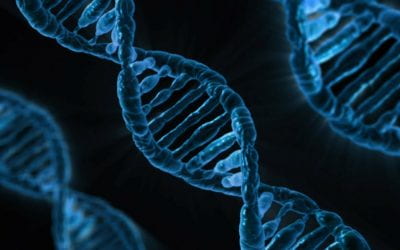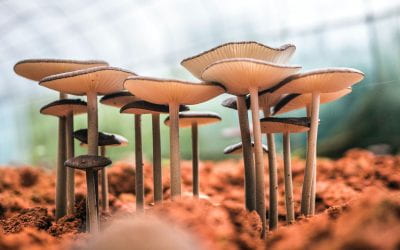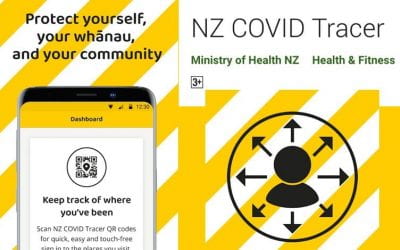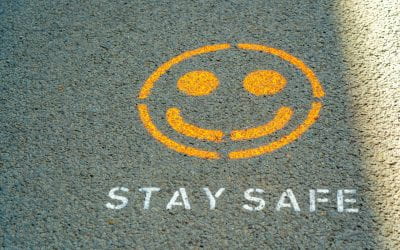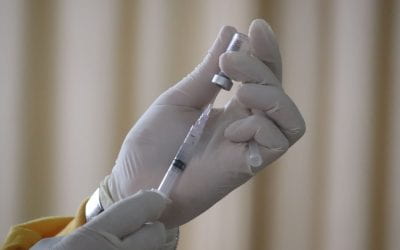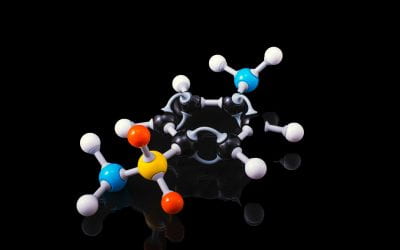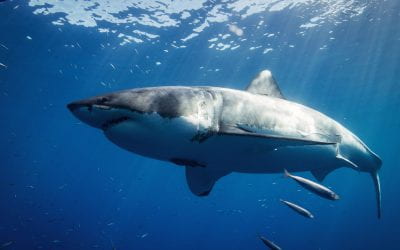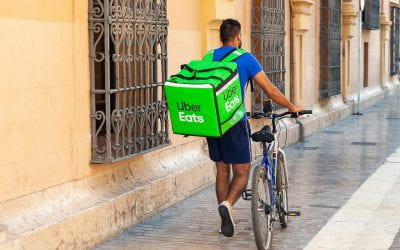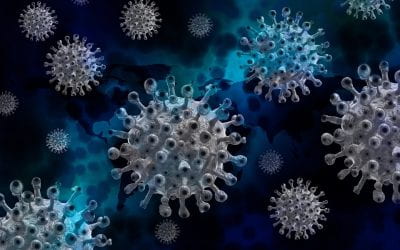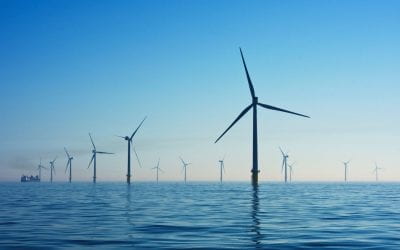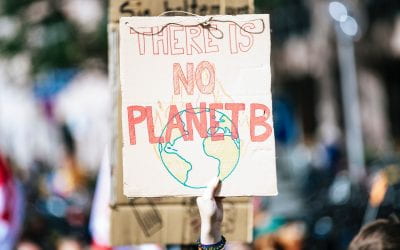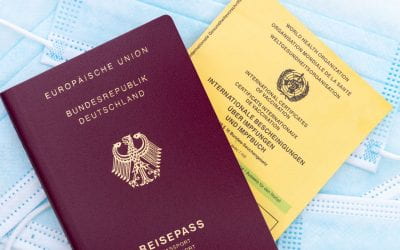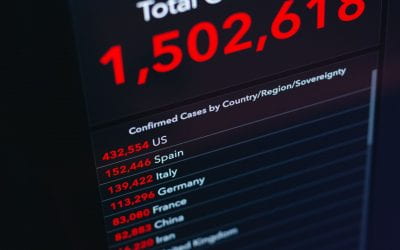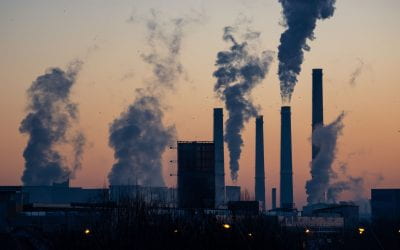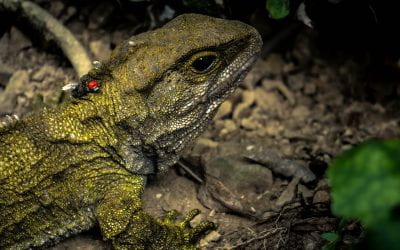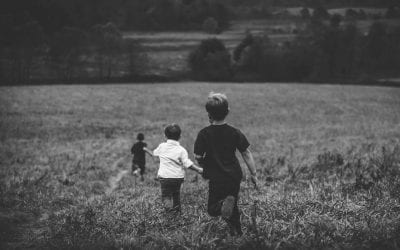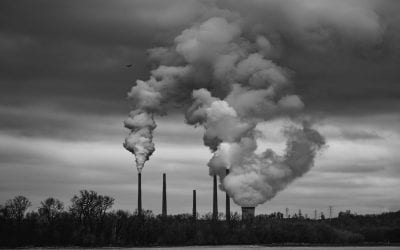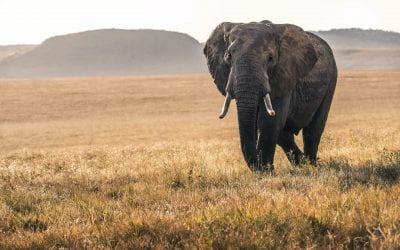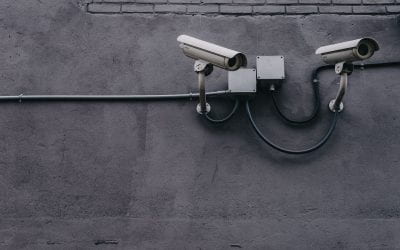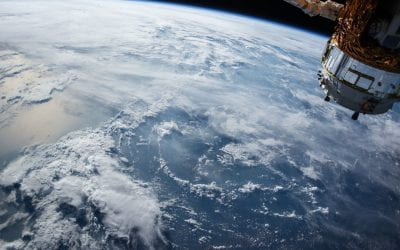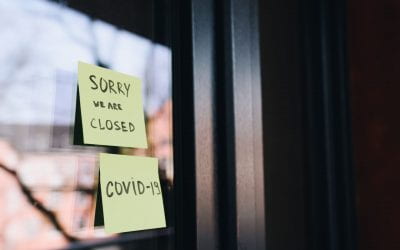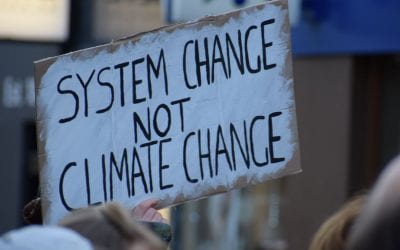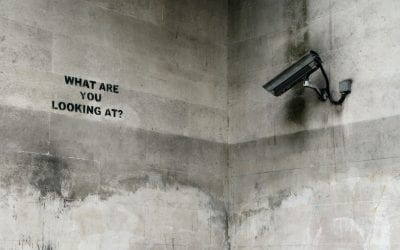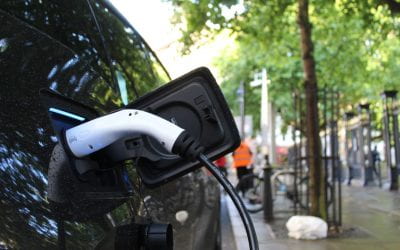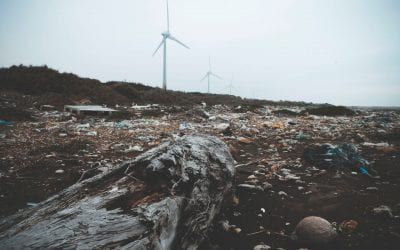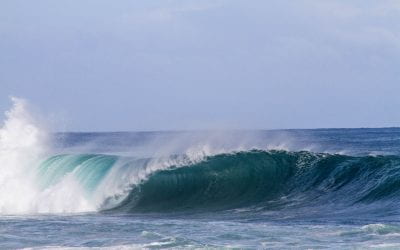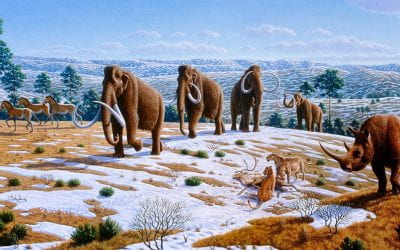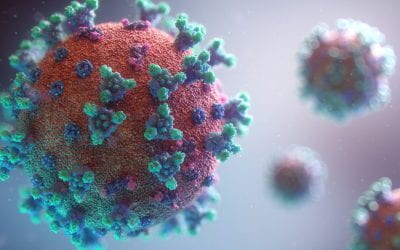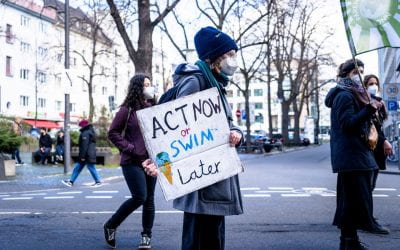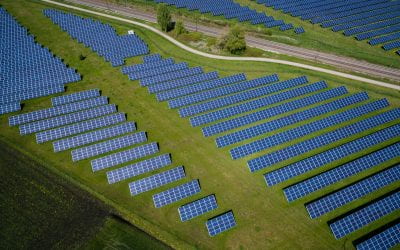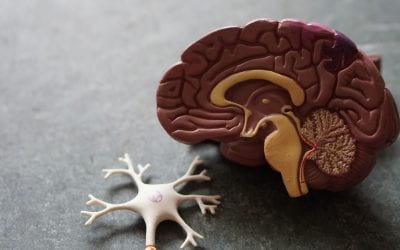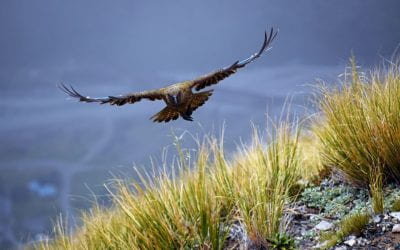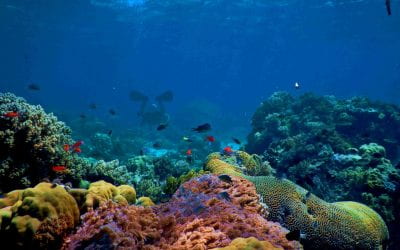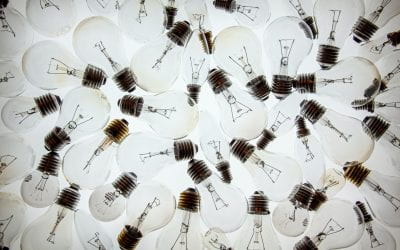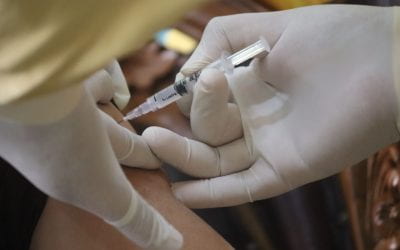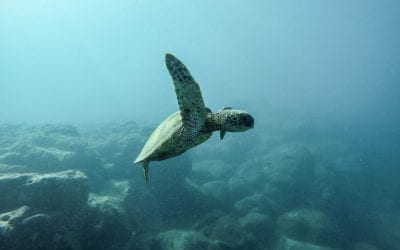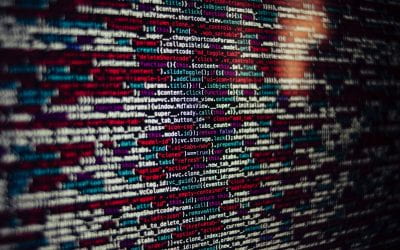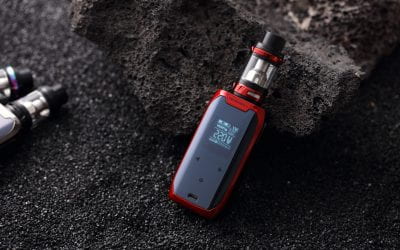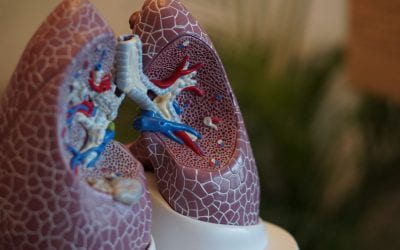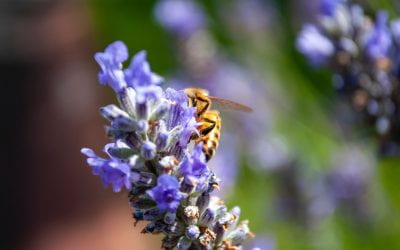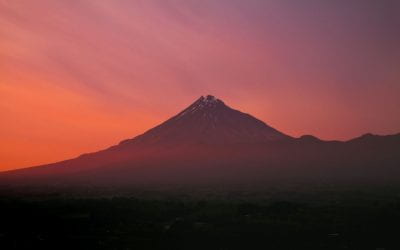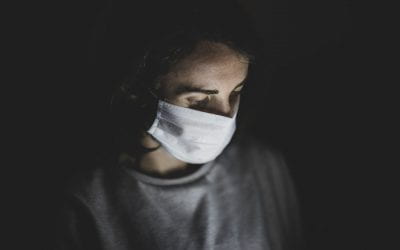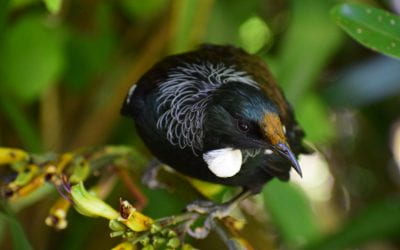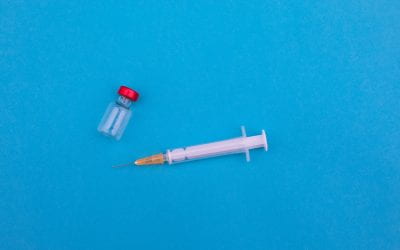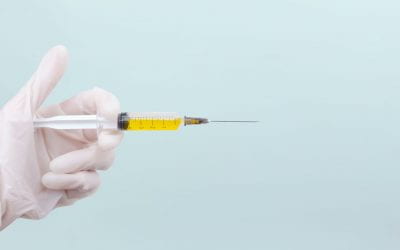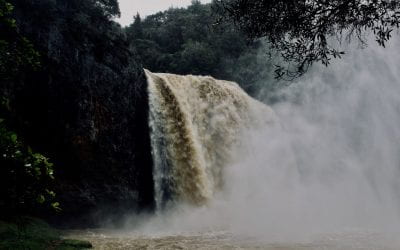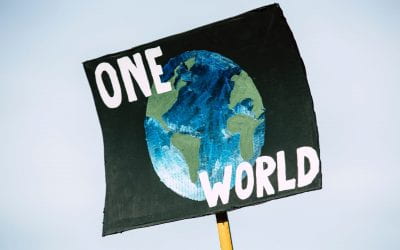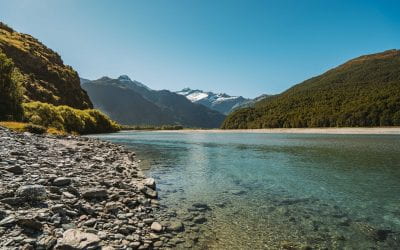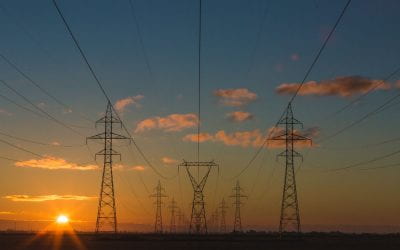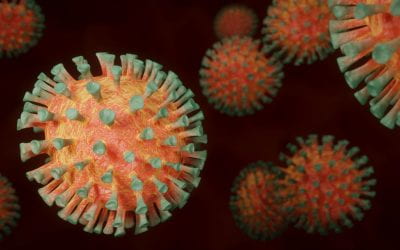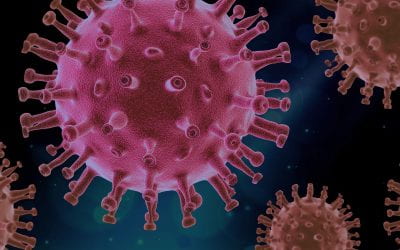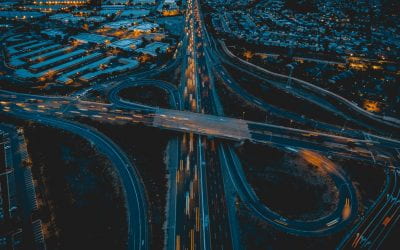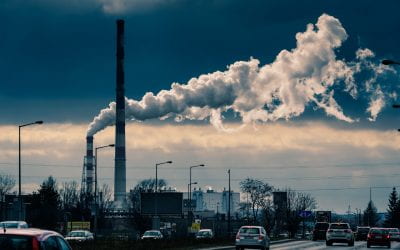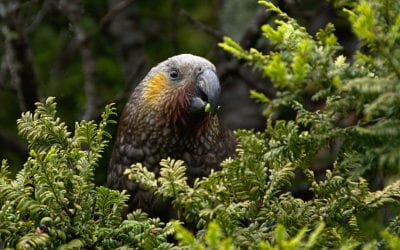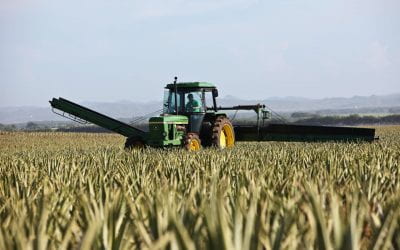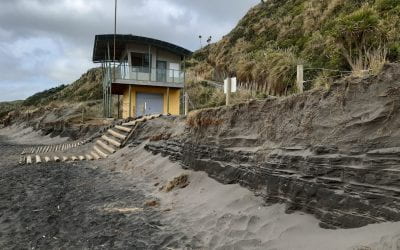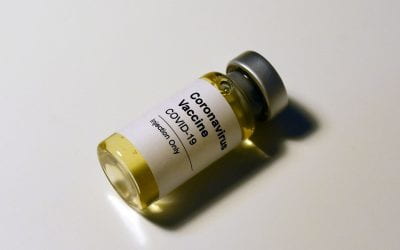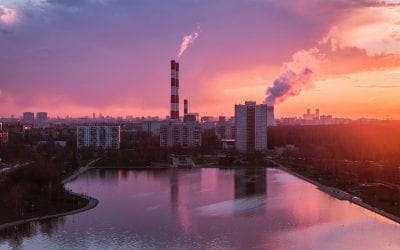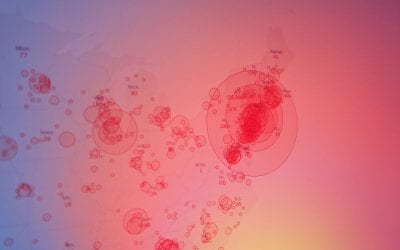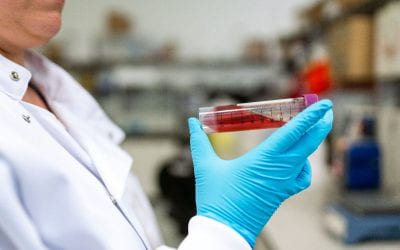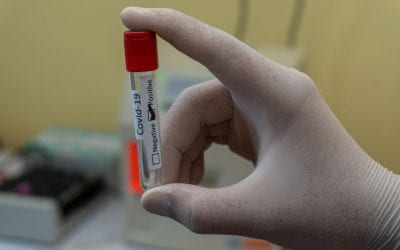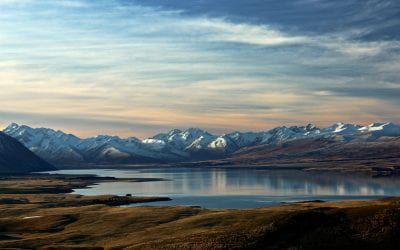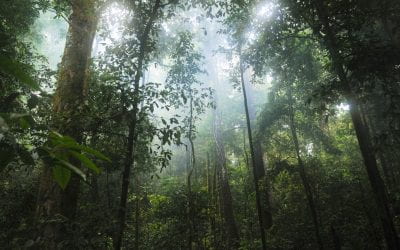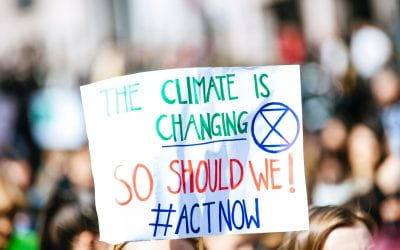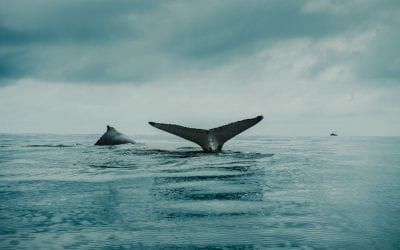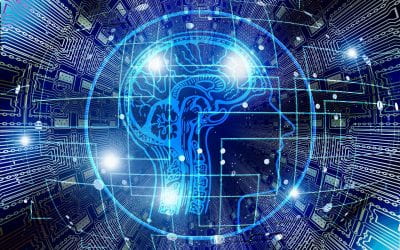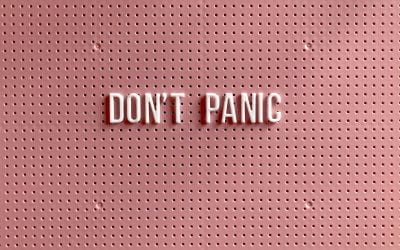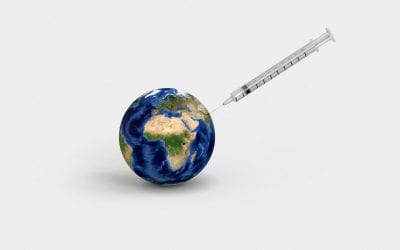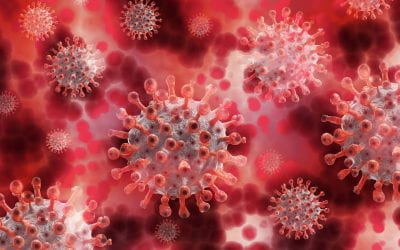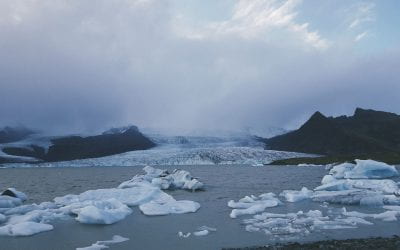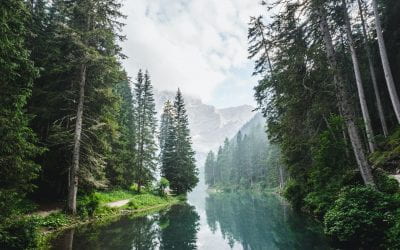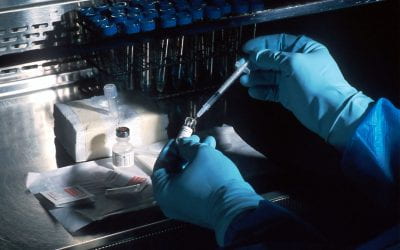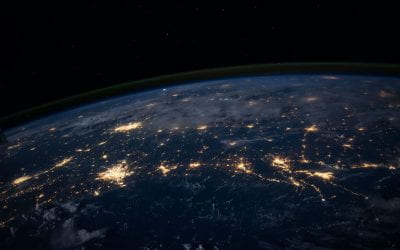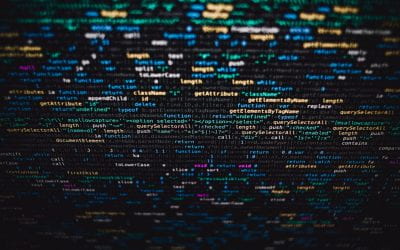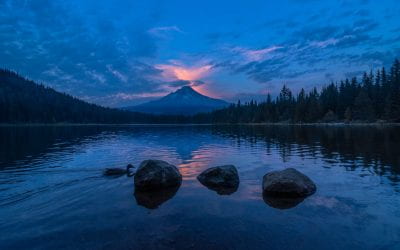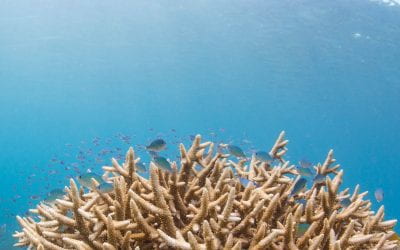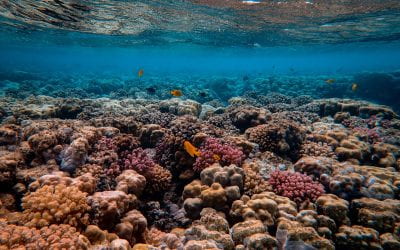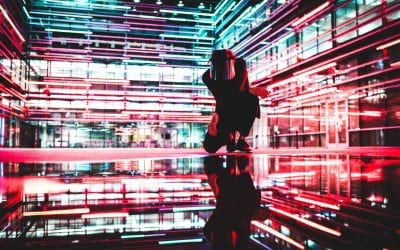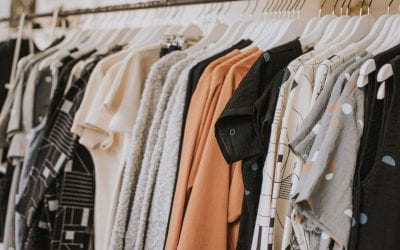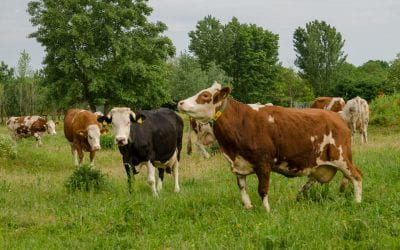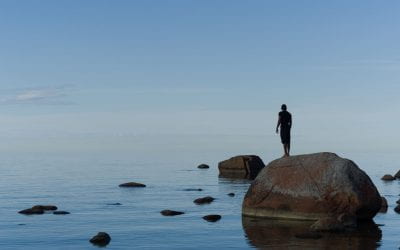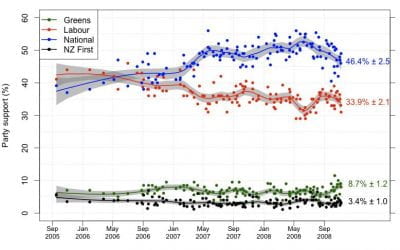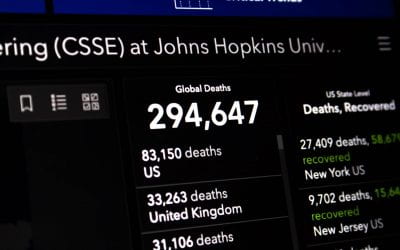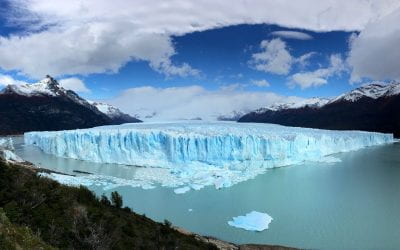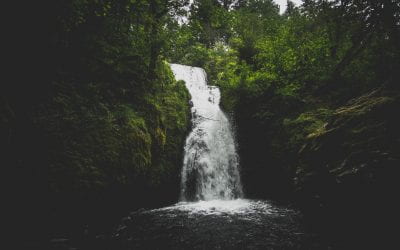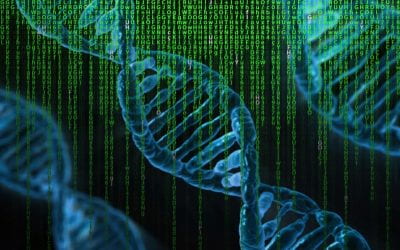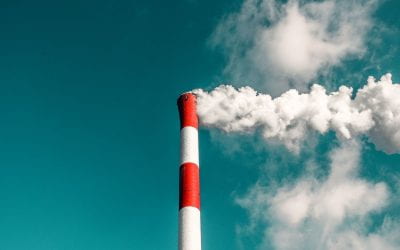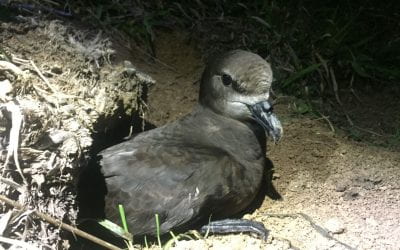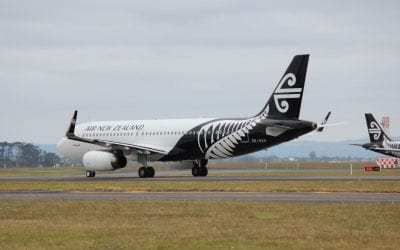Science & Technology
Sustain: How can we deal with the threat posed by microplastics?
From the Antarctic to the deepest depths of the ocean, microplastics are found in increasingly large numbers. These tiny, seemingly inescapable plastics pose a range of threats to human health, animal life and the ecosystems on which we rely. How can we deal with this...
Is the New Zealand Space Agency doing enough to promote sustainability?
New Zealand’s aerospace sector is growing rapidly, but as latest research shows, it is falling short on addressing urgent sustainability issues because of a perception this would incur short-term costs and slow growth.
Sustain: What role can local and traditional ecological knowledge play in fighting climate change?
The UN Convention on Biological Diversity (CBD) has outlined a plan for humanity to live in harmony with nature by 2050. Our cities aren’t going away, so how can we use biodiversity as a building block and work with indigenous technologies to take action? Pauline Herbst talks with international landscape designer and keynote speaker at the World Green Infrastructure Congress 2024, Julia Watson, to answer these questions.
Can marine microbes break down microplastics?
Marine plastic pollution is a massive environmental issue, our new study finds no clear correlation between plastic pollution levels and the production of plastic-degrading enzymes by marine microorganisms.
Sustain: What role can seaweed farming play in the fight against climate change?
AgriSea CEO Clare Bradley and Tane Bradley (AgriSea CIO) inspect a seaweed harvest on a New Zealand beach. ©AgriSea. With increasing interest in aquaculture as an alternative to land-based agriculture, Dr Pauline Herbst speaks to Prof Andrew Jeffs, from the Institute...
Sustain: What are the future of cities in a climate crisis?
Brisbane City Flood 2013. Photo by ShepsSnaps, licensed under CC BY-SA 2.0 With over half the global population living in urban centres, a number which is projected to rise to around two-thirds by 2050, the relationship between cities and the climate crisis is...
Planet + People vs Plastics
On Earth Day 2024, Ngā Ara Whetū partnered with Te Aka Mātauranga Matepukupuku, the Centre for Cancer Research, to discuss the ubiquitous presence of plastics in our environment, and the impact they are having to the land, sea, air, animals, and on our own health and well-being.
Could one small step for supply chains mean one giant leap toward sustainable space exploration?
Without proactive leadership on environmental sustainability, the New Zealand space industry risks losing competitive advantage in a global space market with increasingly environmentally conscious customers. Shedding light on supply chains is the first step.
Sustain: How can nature guide our remedies for climate change driven flooding?
Maria Armoudian discusses nature-based solutions to flooding with Gary Brierley and Tim Welch.
Is the Ocean the Key to New Zealand’s Climate Change Battle?
New Zealand explores ocean strategies for carbon neutrality, considering kelp farms, coastal wetlands, and marine carbon removal for climate goals and risks
How can Australians learn to live better with fire? Lessons for the World.
Discover the latest on bushfires: risk assessment, community resilience, innovative solutions, and the changing language surrounding fires in our evolving climate.
The Scholars’ Circle: Could a push to “deep listening” help promote biodiversity?
The Scholar’ Circle discuss the book The Sound of Nature by Karen Bakker, then talks about the meaning of Thanksgiving in the contemporary relationship between the United States and Indigenous people.
What’s triggering the Southern Ocean sea ice decline? Over 200 scientists sound the alarm for urgent conservation action.
Scientists from 19 countries reveal the Southern Ocean crisis—declining sea ice, warming oceans, and urgent calls for global conservation action.
Are we heading towards a world without antibiotics?
As antibiotics face resistance, experts discuss origins, consequences, and solutions. Explore the journey from saviors to potential threats in healthcare.
Can the US Lead in AI Regulation Despite Congress Deadlocks?
President Biden’s comprehensive AI executive order leads the way in regulating AI, addressing deepfakes, privacy, innovation, and global leadership while facing challenges.
Could Common Crops Be the Key to Suppressing Fires?
Explore how low-flammability crops can reshape agriculture, protect farms, and mitigate wildfires, based on research from New Zealand’s Lincoln University.
Has Australia’s Hydrogen Hour Finally Arrived?
Discover Australia’s rise in hydrogen production and its potential to reshape the energy landscape with sustainable innovations, despite impending challenges.
Sustain: Is forestry contributing to climate change?
Maria Armoudian discusses the role of forestry in climate change with Kevin Trenberth, George Perry and Cate Macinnis-Ng.
As West Antarctic ice shelves rapidly melt, can we use this knowledge to inspire courageous, long-term planning?
Recent research predicts that West Antarctic ice shelves will melt rapidly, causing sea-level rise, challenging coastal communities, and demanding courageous long-term planning.
Is social media spending driving elections in New Zealand?
This year’s election has gone to the highest bidders. But is it all about the money? Social media spending may be a crucial part of the puzzle.
How Can Ruapehu’s Ski Fields Reimagine Their Future Amid Climate Change Challenges?
Explore the uncertain future of Ruapehu’s iconic ski fields amidst economic challenges, climate change, and its rich cultural significance.
Sustain: What can be done about invasive species?
Maria Armoudian discusses invasive species with ecological experts Jacqueline Beggs and Al Glen.
Will Fukushima Nuclear Wastewater Disrupt The World’s Seafood Trade?
Computer modeling predicts turmoil in the global seafood market due to Fukushima wastewater discharge, impacting Japanese seafood and international trade.
With Future Diets Face Shortages of Micronutrients, Is it Time to Consider How We Feed People?
Discover the importance of reevaluating our approach to feeding people for a healthier tomorrow.
Can We Prevent the Extinction Crisis Driven by Invasive Species?
Explore the alarming impact of invasive alien species on global biodiversity and ecosystems.
Can Gene Mapping Help Save Critically Endangered Species?
Discover how gene mapping of New Zealand’s rare Kākāpō parrot population offers crucial insights for conservation.
Is Targeted Protection the Key to Managing Endemic COVID?
Discover how targeted protection could prove more effective than blanket measures in managing endemic COVID-19. Expert insights and mathematical analysis provided.
Can We Create ‘Sponge Cities’ Without Spending Billions?
Explore the concept of ‘sponge cities’ as a solution to manage rising rainfall in New Zealand. Discover how these innovative approaches can mitigate flooding and climate impacts while considering the urgency of action.
Can New Zealand’s Public-Private Partnerships Lead Climate Innovation?
“Unveiling a comprehensive climate strategy for New Zealand beyond investments, encompassing renewable energy, sustainable travel, and carbon mitigation efforts.”
What opportunities and challenges does cultured meat present for farmers?
Some farmers express concerns while others see opportunities. Today’s research explores implications for the industry and society.
What can New Zealand learn from China’s success creating sponge cities?
China’s ‘sponge cities’ beat urban heat and flooding, providing insights for New Zealand’s urban planning. Here are lessons from Zhuhai City’s success.
Can We Unearth the Wealth Within E-Waste?
William Sheard looks to innovate e-waste recycling, hoping to help extracting billions from discarded electronics for a greener future.
How Do New Zealand Lakes Compare in Plastic Pollution to the Rest of the World?
Explore the global study on plastic pollution in New Zealand lakes, revealing alarming findings and the urgent need for action.
Is Biodegradable Plastic the Answer to Consumerism and Climate Change?
Delve into the intersection of consumerism, climate change, and biodegradable plastics to uncover sustainable solutions for a greener future.
Can carbon solve the carbon problem?
Professor Ajit Sarmah has written the book on biochar, a form of carbon that at scale could have a major impact in reducing carbon emissions.
Is science education failing to prepare students for the complex challenges of the world?
New Zealand’s science curriculum undergoes reform, focusing on real-world issues, interdisciplinary learning, and critical thinking to prepare students for complex challenges.
Can Neutrinos Unlock the Secrets of the Milky Way’s Extreme Environments?
IceCube Neutrino Observatory captures Milky Way image with neutrinos, bringing us closer to understanding cosmic ray origins.
Are our cosmological models in need of a radical rethink?
New observations challenge the Cosmological Principle, prompting a reconsideration of our understanding of the Universe and its geometry.
Can New Zealand’s Geothermal Wells Solve Our Carbon Dilemma?
New Zealand’s geothermal wells provide a cheap way to store carbon, potentially removing emissions equivalent to 600,000 cars.
How can we slow the decline of our oceans’ health?
Karen Fisher explores ecosystem-based management as a solution to improve New Zealand’s marine environment through cumulative pressure mitigation and inclusive governance.
Can we save marine sponges and their vital microbial communities from extinction?
Rising temperatures are causing mass deaths of marine sponges due to the breakdown of symbiosis with crucial microbes.
Is our best weapon against climate change buried in the depths of our fiords?
Blue carbon emerges as a global option for carbon sequestration, with fiords and marine sediments offering significant potential for carbon storage.
Can prehistoric droppings help uncover a new world of conservation?
New research reveals the importance of southern beech trees in the kākāpō’s diet and breeding cycle, aiding conservation efforts.
We’re building harder, hotter cities: Should we instead protect and grow urban green spaces?
Housing intensification in Hamilton. PCE, CC BY-SA Timothy Welch, University of Auckland Recent extreme weather events have provided a foretaste of how supercharged storms might threaten our future. So the release today of a new report from the Parliamentary...
From farming to fermentation: Could New Zealand ‘brew up’ new foods to reduce agricultural emissions?
Addressing the problem of New Zealand’s agricultural emissions has mainly focused on technical fixes aimed at reducing methane and nitrous oxide produced by livestock and fertiliser and relying on voluntary agreements with the industry. But these measures may not result in substantial emissions reductions any time soon.
The cow in the room… A problem of production or consumption?
Techno-scientific solutions have been thrown at the problem of farm-based greenhouse gas emissions. It’s an economy in and of itself.
What should New Zealand do to commit fully to tackling climate change?
We need to invest in clean technologies and circular economies to build a sustainable, diversified economy. And that will also lessen our dependence on carbon-emitting industries, say leading Auckland academics.
IPCC report: Is the window closing for a liveable future?
The latest UN climate report finds that in the absence of ambitious action on climate change, the worst is yet to come for human populations.
How can we address Covid anxiety?
Listening to other people’s stories is a powerful way to unite people, and instead of belittling anxieties as illogical, addressing fears with understanding can help us design responses which enable all people to experience security in uncertain times, writes Dr Mary Breheny.
Will Antarctica’s under-ice rivers contribute to sea level rise?
Exploring Antarctica’s hidden under-ice rivers and their role in future sea-level rise.
Are driverless cars bad for the environment?
Driverless cars won’t be good for the environment if they lead to more auto use.
Why won’t carbon farming pine trees truly help mitigate climate change?
It’s time for Labour and the Greens to rescue their climate consciences and stop plans to plant vast, environmentally risky pine forests as a way of offsetting our greenhouse gas emissions.
What cultural values belong in science?
The University of Auckland’s Julie Rowland examines the notion that education should be secular and devoid of any form of spirituality.
What is Havana syndrome?
Robert Bartholomew takes apart the theory US and Canadian diplomats were the target of a mysterious new weapon in Cuba and lays out a much more likely explanation.
In what ways can we measure the carbon footprint of the natural world? ▶
James Muirhead says Aotearoa New Zealand is the perfect place to understand the carbon emissions from the natural world.
How can we use AI to help treat asthma? ▶
Amy Chan is using artificial intelligence to derive better ways for asthmatics to stay on top of their condition.
How can we prevent brain damage at birth? ▶
Laura Bennet and her team have been investigating new ways to monitor brain waves in babies at the time of birth. Their goal: reduce brain damage due to hypoxia or oxygen deprivation.
What are the problems with New Zealand’s climate strategy?
Dame Anne Salmond lays out the fundamental problems with this country’s strategy to use pine forests and overseas offsets to help wish away our climate emissions.
How can mRNA and DNA vaccines help treat diseases like cancer?
The two most successful coronavirus vaccines developed in the U.S. – the Pfizer and Moderna vaccines – are both mRNA vaccines. The idea of using genetic material to produce an immune response has opened up a world of research and potential medical uses far out of reach of traditional vaccines.
Can genetics be used help conserve endangered species?
Conserving wildlife with breeding programs doesn’t help threatened species to adapt, but synthetic biology may be able to bring protection by adapting genetics.
Screen time: how much is too much?
A healthy digital diet is different for different people. We need to learn to listen for what our body and brain are telling us.
What are the causes of tsunamis?
What causes a tsunami? An ocean scientist explains the physics of these destructive waves.
How do heatwaves affect biodiversity?
New Zealand summers are getting hotter – and humans aren’t the only ones feeling the effects.
What caused the Tongan volcano eruption and what will happen next?
Why the volcanic eruption in Tonga was so violent, and what to expect next.
Are oceans the key to combating climate change?
Oceans have already slowed the rate of global warming for decades, but unless we shift our approach to focus on them we will lose that capacity to solve the planetary overheating problem.
Lighting the way: How are biophotonics providing solutions to pressing problems?
Researchers in biophotonics tell us how they are using fundamental science to create solutions that improve food safety testing and reduce antibiotic resistance.
How can we make cyberspace safer?
As our dependence on being connected to the internet grows, so does our need to protect our data and improve our resilience to cyber-attacks.
How can we make our air cleaner and fresher?
Our researchers investigate what’s really in the air we breathe and how we can make it cleaner and fresher in our urban areas.
What are the consequences of exploiting the resources in our solar system?
With the 2021 boom in space tourism and the rapid development of the giant SpaceX Starship from a string of fiery crashes to a ready-for-orbit vehicle, the idea that lots of people may soon live and work in space has become something that feels like it could happen.
How can scientists update coronavirus vaccines for Omicron?
If the omicron variant of the coronavirus is different enough from the original variant, it’s possible that existing vaccines won’t be as effective as they have been. If so, it’s likely that companies will need to update their vaccines to better fight omicron.
For silent nature: Why is birdsong declining across continents?
Supporting local initiatives of conservation, such as, predator control programs, reforestation in regional parks, planting native trees in your backyard and keeping your cat indoors can make a huge difference for our native birds.
Why are invasive species threatening Antarctica’s ecosystems?
Invasive species are threatening Antarctica’s fragile ecosystems as human activity grows and the world warms.
Omicron: What do we know about the new Covid variant?
A new SARS-CoV-2 variant has been identified – B.1.1.529. The World Health Organisation has declared it a variant of concern, and assigned it the name Omicron.
Gaining steam or just hot air: What is the role of hydrogen in decarbonising New Zealand’s economy?
To make hydrogen competitive with fossil fuels, the Government would need to use a combination of investment, incentivisation and regulation but these benefits should only apply to certified green hydrogen, produced with renewable energy.
Is New Zealand’s infrastructure ready for the uptake in electric vehicles?
Is New Zealand’s infrastructure ready for an increased uptake in electric vehicles? Experts at the University are helping devise the technology needed as well as working to remove barriers to access.
How biased are algorithms? Can they be put to better use? 🔊
Algorithms reflect the biases of the society in which they exist and the programmers who create them. With this, however, there has been a social and political reaction against their use.
Do we need a fundamental rethink into how we address climate change?
By Anne Salmond The way the Government is investing in tackling climate change is scientifically ill-informed, and economically ill-considered. It needs a fundamental rethink, writes Dame Anne Salmond. My heart sank when I read about the commitments that New Zealand...
Why are rapid COVID tests so expensive and hard to find?
Months-long silences. Mysterious rejections. Here’s what’s behind the shortages of a critical tool for ending the pandemic.
What is the metaverse?
What is the metaverse? Two media and information experts explain.
COP26: Does New Zealand’s latest climate pledge go far enough?
New Zealand’s new climate pledge is a step up, but not a ‘fair share’.
How can we limit destruction from oil pollution in the transition to renewables? 🔊
On October 22, 2021, evidence of a major oil spill off the coast of California was reported. A pipeline spilt an estimated 30,000 gallons of oil into the ocean and onto the beaches. This oil spill caused significant environmental, ecological, and economic damage.
Has research found a breakthrough to treat malaria?
An international collaboration has developed a new drug candidate that stops the malaria parasite from breaking down waste, resulting in fatal ‘molecular constipation’ and hope for new treatments.
How do microplastics impact the environment and our health?
Microplastics are in the air we breathe and in Earth’s atmosphere, and they affect the climate.
Could space junk prevent future space exploration?
There’s too much junk in space and a real need to know where it is moving, to protect important spacecraft and satellites, writes Laura Pirovano.
How can New Zealand reach 100% renewable energy?
Renewable energy sources currently supply around 40% of total energy demand in New Zealand. Increasing this share is critical to reducing the current level of greenhouse gas emissions to meet our international obligations.
Can viewing art reduce stress?
By Paul Panckhurst There's evidence that looking at paintings can reduce stress and anxiety. A researcher wants to know if this phenomenon can help surgery patients heal. Pablo Picasso once said, "Art washes away from the soul the dust of everyday life.” The artist...
How is human-driven noise affecting whale migration patterns?
Mathematical modelling reveals that human-driven noise in our oceans is affecting marine life, particularly whales, confusing their annual migrations.
How can nature-based forests help combat climate change?
The use of ‘permanent’ plantations of pine trees solely to build up carbon offsets is solving one harm with another, writes Dame Anne Salmond. There is an alternative.
What role did big data play in New Zealand’s covid response and how can AI be applied to address other local and global challenges? ▶
We have seen the critical role that big data has played in the pandemic, from detecting outbreaks to identifying new variants. This discussion will look at the potential for big data to play a key role in tackling problems in a range of other areas, as well as exploring some of the challenges associated with the growing use of big data.
Is Aotearoa ready for the long-term impact of Covid? ▶
It has now become apparent that the impacts of Covid-19 will be felt for many years. Emerging research highlights the serious health effects of ‘long covid’ as well as the impact of lockdowns on mental health, well-being, and education.
What are the challenges facing Aotearoa’s water? ▶
This discussion will focus on identifying the big water challenges facing New Zealand and the role that different stakeholders can play in tackling water issues.
Could psychedelic drugs be used as medicines? ▶
In this talk, Associate Professor Suresh Muthukumaraswamy describes the recent renaissance of psychedelic drug research and the pathway for psychedelics to be introduced as important new medicines.
How much of the world’s energy comes from fossil fuels and could we replace it all with renewables?
How are fossil fuels formed, why do they release carbon dioxide and how much of the world’s energy do they provide? And what are the renewable energy sources that could replace fossil fuels?
How can we sustain Aotearoa’s wildlife? ▶
In this seminar hosted by the University of Auckland Faculty of Science, experts across several disciplines share their knowledge of how we can help sustain Aotearoa’s wildlife into the future.
Human genome editing – are we ready? ▶
In this talk, Senior Lecturer Hilary Sheppard illustrates how CRISPR can be used to fix disease-causing broken genes in adult cells.
Could fungi help in the development of new antibiotics?
The world is desperate for new antibiotics, and New Zealand’s unique fungi are a source of promising compounds.
Is our COVID tracer app data protected enough?
New Zealand is introducing mandatory record keeping to help contact tracers. But is the data protected enough?
COVID: What should we be doing for Māori and Pacific peoples?
Covid-19 is hitting our Māori and Pacific communities disproportionately hard. So how can we improve clear, targeted messaging on vaccination?
Should we be worried about COVID vaccine side effects?
Health risks from contracting Covid-19 far outweigh the rare vaccine side effect linked to the woman who died in New Zealand last week. Helen Petousis-Harris explains.
The atom splitter: What is Ernest Rutherford’s legacy?
It’s the 150th anniversary of the birth of New Zealand’s most celebrated scientist, Ernest Rutherford. Richard Easther acknowledges the man who brought us the insight that our world is made of atoms.
How dangerous are humans to sharks?
A new approach estimates the risks that fishing and climate change pose to any shark species in Australia, and potentially worldwide.
Are food delivery services good for your health?
On-off lockdowns and social distancing has seen demand for food delivery services soar. Dr Rajshri Roy asks that we examine the impact of such services on our exposure to unhealthy foods and dietary intake.
How will Delta evolve? Here’s what the theory tells us
The COVID-19 pandemic is a dramatic demonstration of evolution in action. Evolutionary theory explains much of what has already happened, predicts what will happen in the future and suggests which management strategies are likely to be the most effective.
What actions do we need to take to mitigate and adapt to climate change? 🔊
This month, the IPCC released its sixth assessment report. This report was the starkest of any of the IPCC reports thus far.
What are the big takeaways from the IPCC report?
The Intergovernmental Panel on Climate Change (IPCC) has released the scientific playbook for charting our climate future – but we must act immediately.
Do COVID vaccination passports have a role to play?
As Australia and the world navigates its way to a post-COVID-19 normality, what role should immunity passports play and what does the public think?
How has modelling helped the COVID response in Aotearoa? ▶
Mathematical models are playing an important role in the ongoing pandemic, providing insights into the spread of the virus and the effects of interventions to help inform response strategies.
What is the impact of air pollution on life expectancy?
Air pollution is already having devastating effects on human health, now a new study shows how particulate matter in the air is associated with premature deaths.
How is Tuatara sperm helping conservation efforts in Aotearoa?
Tuatara are ancient, slow and endangered. But their super speedy sperm could boost conservation efforts.
Does poverty impact childhood development?
Dr Jin Russell is working at the coalface of children’s health and says poverty has a major effect on childhood development as well as contributing to illness.
Climate emergency: What does the IPCC report say about the Earth’s future?
This is the most sobering report card yet on climate change and Earth’s future. Here’s what you need to know.
Are we living in the Sixth Extinction?
There are solutions to the ecological problems facing the planet and we have some time to implement them – we had better use that time wisely.
Mātauranga Māori: What is science?
Let’s choose our words more carefully when discussing mātauranga Māori and science.
Is TikTok breaching your privacy?
TikTok is hugely popular. But its latest decision to capture unique digital copies of your face and voice is a cybersecurity threat to your identity and privacy.
How serious is the threat of cyberattacks?
Calling out China for cyberattacks is risky — but a lawless digital world is even riskier.
Why do we have Zoom fatigue and what can we do about it?
Why is it that after studying, working, entertaining and socialising at the computer screen or looking at texts, Instagram, Facebook, Tiktok and responding to notifications on the cellphone, we often feel exhausted (Zoom fatigue) and experience neck, back and shoulder discomfort, or eye irritation?
How can we clean up space?
Space might be the final frontier, but, like all frontiers it’s strewn with junk. Luckily, Professor Guglielmo Aglietti, director of the Auckland Space Institute has a plan.
What’s the right COVID-19 risk to live with?
As Australia looks toward opening its international borders, new virus modelling provides scenarios that can help us decide what’s the right risk to tolerate.
What can we do about climate change? Here are five ways to tackle the biodiversity and climate change crises simultaneously
There are options for addressing climate change and biodiversity loss together – so called nature-based solutions – which are solutions to societal challenges that involve working with nature.
Is cyber security a people problem?
In an age where personal information is the new oil, chief privacy officers in companies should be as important as chief financial officers. Gehan Gunasekara explains the human dimension to cyber vulnerabilities – and how we can keep safe.
How can we increase electric vehicle usage?
Wireless charging stations set in the pavement for vehicles to park over are closer than you think, for both cars and heavy transport vehicles.
Just how bad is plastic pollution? How can we solve the plastics problem?
Plastics are big news: the Government has just announced they will phase out a range of single-use and hard-to-recycle plastics. Plastic Free July is upon us. But are you someone who wonders what all the fuss is about?
Can we use bio-fouling organisms to help extract energy from waves?
Power from the ocean: can we use bio-fouling organisms to help extract energy from waves?
How are we fighting kauri dieback?
Progress is being made in the fight against kauri dieback. Anthony Doesburg meets researchers at the University determined to help save the mighty native conifer.
From Aptornis to Zosterops: What can be done about an extinction crisis 50,000 years in the making?
Conservation comes down to values. Do we only focus on the charismatic animals and the things we can see, or do we conserve the out-of-sight, out-of-mind Lilliputs? If that world collapses, you can be sure ours is next.
What are the effects of long COVID?
Dr Victor Dieriks draws attention to Covid’s potential risks of long-term, life-changing neuropsychiatric disorders should we not run a successful vaccination campaign.
Is natural gas really cheaper than renewable electricity?
The government wants us to phase out fossil fuels. Yet natural gas is much cheaper for households to buy per kWh than electricity. Why?
How can ethical algorithms combat online extremism?
Jacinda Ardern is calling for ‘ethical algorithms’ to combat online extremism. What does this mean?
Are prescription medicines particularly expensive in New Zealand?
Access to medicines is in many ways a litmus test of a decent society, particularly if a medication can make a difference between life and death.
Climate change or COVID-19: Which is a greater threat to our health?
The human impact of COVID-19 has been horrific, and the health impacts of climate change continue to mount. Rather than focus on comparing the scale of these catastrophes, we should heed the lessons of our experience with COVID-19 as we face a changing climate and future pandemics.
How can we use and waste less energy?
If we keep trying to maintain our current growth trajectory, built on a one-off fossil bonanza, we will destroy the already stressed life-supporting systems that sustain us.
How will the future development of AI impact Māori? ▶
In this talk, Potaua Biasiny-Tule will discuss how AI development could impact Māori.
What is motor neuron disease and why is it so deadly?
New Zealand has one of the world’s worst rates of a fatal brain disease. Now, scientists hunting rogue genes hope to unravel the 150-year-old mystery of what triggers the disease and how to find a cure.
How can we address biodiversity loss? ▶
Biodiversity loss and climate change are paramount global existential threats. A conservation scientist must wield a scientific Swiss army knife to successfully undertake research in these topics that informs policy.
Is time running out for our coral reefs?
New research is suggesting the outlook for coral reefs remains grim unless we cut emissions fast.
What is the future of thinking in the wake of AI? ▶
In this talk, hosted by the University of Auckland’s Faculty of Science, Michael Witbrock will survey some of the upgrades that most directly predict the path towards broadly capable AI, while looking at indicators that such AI is fairly imminent
COVID vaccines and blood clots – what is this about?
If the risk is as small, as it currently appears to be, then we need to ask ourselves if it is worth using these vaccines and if so, in whom.
Why is marine life fleeing the equator?
Marine life is fleeing the equator to cooler waters. History tells us this could trigger a mass extinction event.
Where does Social Media – video, gaming and sharing – sit in the landscape of information technology?
Social media has come a long way since its inception. From Facebook to TikTok today, social media has created a separate field of its own in the vast world of information technology.
How safe is vaping?
We know the damage smoking causes, but we’re yet to conduct conclusive research about vaping. That’s the focus for Kelly Burrowes for the next three years.
What is the virtual lung and how can it help COVID patients?
Professor Merryn Tawhai’s work on the virtual lung has led to a vital new tool for medical staff caring for patients hospitalised with serious Covid-related illness.
Synthetic chemistry: How are molecules made? ▶
The synthesis and study of molecules is at the heart of chemical research. One of the most challenging aspects is the development of methods to synthesise molecules for the first time.
Why are sea levels rising fastest in big cities?
Increased urbanisation especially in deltas areas and the demand for freshwater means subsidence will remain a pressing issue in the coming decades.
Is time running out for Aotearoa’s birds and bees?
New Zealand’s native bees and almost all our sea birds could face extinction. Action and research are needed more than ever, write Maria Armoudian and Brendon Dunphy.
What are the risks we face from volcanoes? ▶
In her inaugural lecture held at the University of Auckland, Professor Jan Lindsay gives an insight into her research into volcanoes all over the world
What causes the loss of smell in COVID-19?
New research shows that SARS-CoV-2 infection can cause significant damage to the olfactory bulb and brainstem and highlights the importance of monitoring the neurological symptoms of COVID-19.
How is climate change impacting New Zealand’s biodiversity?
Many New Zealand species are already at risk because of predators and habitat loss. Climate change makes things worse.
How will climate change affect infrastructure? 🔊
Flooding, drought, and rising sea levels are just some of the major climate events that are already affecting millions. One of the major issues, as a result, is how infrastructure in both urban and rural communities will be affected by climate change.
The Emperor’s Institutions: Does COVID-19 vaccine distribution demonstrate the failure of multilateralism?
“Persistent failures must be addressed and overcome in the future if international organisations are to be recognised as meaningful actors promoting global public goods within the international system.”
What can people in wealthy nations do to fix COVID vaccine ‘apartheid’?
Charitable donations from rich countries and individuals are welcome – but they won’t ensure fair vaccine distribution unless the drug-patenting system is reformed, too.
How can a Matauranga Māori lens help keep our rivers healthy?
Researchers have articulated a way to look at and look after our fresh waterways founded on Matauranga Māori.
Why does the United States rejoining the Paris climate accord matter?
The United States is formally back in the Paris climate agreement as of Feb. 19, 2021, nearly four years after former President Donald Trump announced it would pull out.
Can environmental regulation save human kind from self-destruction?
The role of environmental regulation is to prevent harm to the natural world, not only for its sake but to save humankind from self-destruction.
Cleaning up: Can electricity replace fossil fuels in time?
As New Zealand gets serious about climate change, can electricity replace fossil fuels in time?
How can syndemics help us understand disease better?
How is it that an infection can be worse or different depending on whether someone has another disease? Why does it matter where someone lives? Why does history make disease progression different in different places? Thinking about syndemics helps us answer these questions.
Why are more contagious COVID variants emerging?
Why are more contagious variants emerging now, more than a year into the COVID-19 pandemic?
How can we cut emissions from transport?
How to cut emissions from transport: ban fossil fuel cars, electrify transport and get people walking and cycling according to Robert McLachlan.
Climate change: Where to next for Aotearoa?
In a new report, the Climate Change Commission has called on the New Zealand government to take ‘immediate and decisive action’ to cut emissions.
Who is obscuring the link between harmful chemicals and leukaemia?
Research shows that disease is invariably related to pollution in subtle but intimate ways, as Manuel Vallee explains.
How can we preserve New Zealand’s biodiversity?
Creating a safe place for our wildlife to thrive is not only key to preserving biodiversity but also a crucial ingredient for a sustainable world and our own existence.
How can we green our food production and supply chains?
Nearly one in ten people in the world experienced severe levels of food insecurity in 2019. Meanwhile, a third of all food produced globally (around 1.3 billion tonnes) is wasted, each year.
With rising sea levels, what is the future of beaches?
As the sea level slowly rises, we may wonder: what will happen to our beaches? Will they change, maybe even disappear, or will they simply survive the inevitable rise in the sea level?
Climate change: Is New Zealand doing enough? 🔊
New Zealand has continued to garner criticism for inaction on climate change and was recently excluded from the Climate Ambition Summit. This raises the question of whether New Zealand’s climate policy reflects the urgency of the situation.
What are the human rights considerations of the COVID vaccine distribution process? 🔊
In the midst of the global COVID-19 pandemic, the development of vaccines offers hope for global health action. But the task of distributing the vaccine has multiple human rights concerns, including issues of vaccine nationalism and equitable distribution to marginalised communities.
Is 2021 humanity’s make-or-break moment on climate change?
COVID-19 and climate change are two sides of the same coin. To overcome both we must confront their root cause: an economic system that is killing the planet.
How dangerous are the new COVID variants?
New variants of SARS-CoV-2, the virus which causes COVID-19, is thought to be driving increased transmission of the disease around the world.
What are the roots of science denialism in the time of COVID-19, and how do we untangle them?
What has become starkly apparent in the age of the SARS CoV-2 novel coronavirus (COVID-19) is that the effective communication of science-based health messages is no easy task .
Will a COVID-19 vaccine bring the pandemic under control? 🔊
The COVID-19 pandemic has reached a new high in infections across the US, Europe, and around the world. But good news is on the horizon with the development of several vaccines.
Is the Pacific Ocean under threat?
It might be the world’s biggest ocean, but the mighty Pacific is in peril.
What are the key environmental issues facing New Zealand? 🔊
New Zealand Prime Minister Jacinda Ardern has declared a climate change emergency in New Zealand. This declaration is non-binding, but Ardern says the motion intends to hold the Government accountable and recognises that they are taking the issue seriously.
What would happen if we cut down the Amazon rainforest?
What would happen if we cut down the entire Amazon rainforest? Could it be replaced by an equal amount of reforestation elsewhere?
What does the “climate emergency” mean for New Zealand?
“By declaring a climate emergency Jacinda Ardern needs to inspire hope, not fear.”
How useful can statistics be in helping ecological conservation efforts? ▶
In her inaugural lecture at the University of Auckland, Professor Rachel Fewster will give a taste of the diversity of statistical problems in the ecological domain, introduce a charismatic cast of creatures, and give insights into how we can – sometimes – convert baffling volumes of data into interpretable conclusions.
What are some of the key developments in cognitive neuroscience? ▶
In her inaugural lecture at the University of Auckland, Professor Karen Waldie attempts to answer some of the big questions in the area of developmental cognitive neuroscience.
What are the paths to long-term control of SARS-CoV-2 infection in New Zealand?
“High levels of vaccination may be expected to provide our communities with the best possible protection against COVID-19.”
Q+A: Will a possible new COVID vaccine mean the end of the pandemic?
Recent news from pharmaceutical powerhouse Pfizer that a promising vaccine for the COVID-19 virus may soon be made available worldwide, including in New Zealand, has provided optimism in a time of significant anxiety, as infection rates soar internationally.
What other diseases should we be watching out for?
Immunisation expert Dr Nikki Turner says as we wait for a Covid-19 vaccine, there are other diseases to keep in mind.
Can Aotearoa get climate change under control by 2050?
Few countries were ready for the pandemic that’s hit the world. So has the Covid-19 crisis taught us anything about ameliorating the threats of climate change?
Sustainability Bites: How do trees look after us, and how can we look after them? 🔊
Listen to a conversation between Cate Macinnis-Ng, associate professor in the School of Biological Sciences, and Niki Harre, professor in the School of Psychology on how trees respond to climate-related stress.
Is New Zealand ready for a COVID-19 vaccine? 🔊
As COVID-19 cases continue to rise, the world is racing to create a viable vaccine to help control the spread of the virus. Is New Zealand ready for a vaccine? How will it be rolled out? And how effective will it be?
How can we learn to adapt to changes in this dynamic world? ▶
Much of scientific research involves the generation and testing of hypotheses that can facilitate the development of accurate models for a system. In machine learning the automated building of accurate models is desired, however traditional machine learning often assumes that the underlying systems are static and unchanging over time.
Why are data ethics important? ▶
In this talk, Professor Tim Dare from the Faculty of Arts at the University of Auckland will discuss why transparency and explainability have become central to data ethics and the reasons there are to question that centrality.
What is eco-anxiety? ▶
This seminar hosted by the University of Auckland Sustainability Network explores the issue of eco-anxiety and includes speakers from the University of Auckland and AUT who will present current research and approaches to eco-anxiety.
Is heat from climate change alone causing coral bleaching? Or is there something more?
Climate change is causing increased large-scale coral bleaching. That’s because when water is too warm, corals expel the algae living in their tissues, causing the coral to turn completely white.
Is deep sea mining bad for the environment? 🔊
The search for minerals is leading some corporations to begin mining the ocean floor, but scientists warn that this could devastate fragile ecosystems that will have repercussions that we still don’t understand.
What will our future look like with AI? ▶
There’s been dramatic progress in learning skills, such as object recognition, translation and speech, and in difficult but uncomplicated tasks like playing chess, Go and video games.
Fast fashion: What are the hidden costs?
“The textile and clothing manufacturing industry comes with a heavy price including environmental pollution and the well-publicised issues around the income and working conditions for workers.”
What needs to happen to address wildfires? 🔊
In the last few weeks, the western part of the United States has experienced one of the worst wildfire seasons in history. Not coincidently, some areas have also recorded the highest temperatures since records began.
Climate change: How damaging is methane?
Methane is a shorter-lived greenhouse gas – why do we average it out over 100 years? By doing so, do we risk emitting so much in the upcoming decades that we reach climate tipping points?
Climate anxiety: What is it and how can we cope?
Climate change is 100% human-caused, so it’s 100% human-solvable. Don’t surrender to anxiety.
Can you trust political polls?
From now until October 17, Election Day in New Zealand, voters will be getting election poll information from multiple directions. So which ones can be trusted?
Can COVID misinformation cost lives? 🔊
Misinformation is rampant about COVID-19, and in some cases, it has caused death, blindness, emergency health issues, widespread stigma, and social ostracization.
How did climate change make the melting of New Zealand’s glaciers ten times more likely?
Glaciers around the world are melting — and for the first time, we can now directly attribute annual ice loss to climate change.
How can water help us adapt to survive as the climate changes? ▶
The natural sciences that allow us to understand the environment are at the heart of developing strategies to adapt to, survive, and thrive as climate changes.
Why does New Zealand need to focus on genome sequencing to trace the source of its new COVID-19 outbreak?
Genetic surveillance — a technology that uses the genetic fingerprint of a virus to track its spread — is part of the public health response to New Zealand’s new COVID-19 community outbreak and could help pinpoint its source.
Can New Zealand stamp out COVID a second time?
New Zealand is on alert as COVID-19 returns. This is what we need to stamp it out again.
Are we doomed if we don’t manage to curb emissions by 2030?
“Humanity is not doomed, not now or even in a worst-case scenario in 2030. But avoiding doom — either the end or widespread collapse of civilisation — is setting a pretty low bar.”
Our seabirds are in trouble: What do we do?
Currently, 90% of New Zealand’s seabirds are threatened with extinction. It is a colossal loss and a colossally sad number.
What was the world like the last time carbon levels were this high?
What was the climate and sea level like at times in Earth’s history when carbon dioxide in the atmosphere was at 400ppm?
Can New Zealand keep coronavirus out?
Stringent border controls and mandatory quarantine give New Zealand a good chance to remain free of COVID-19 for months to come, according to new modelling from Te Pūnaha Matatini.







